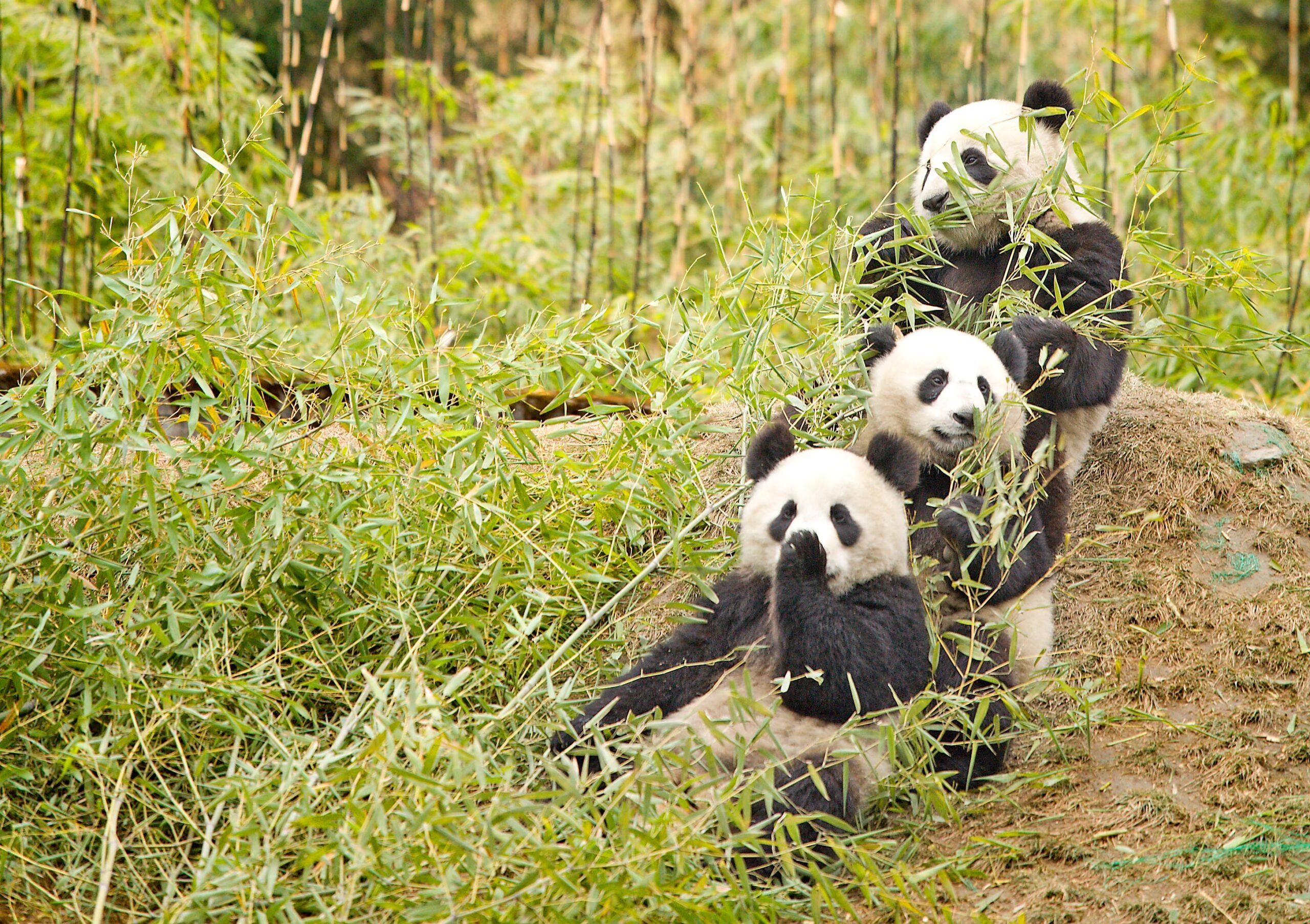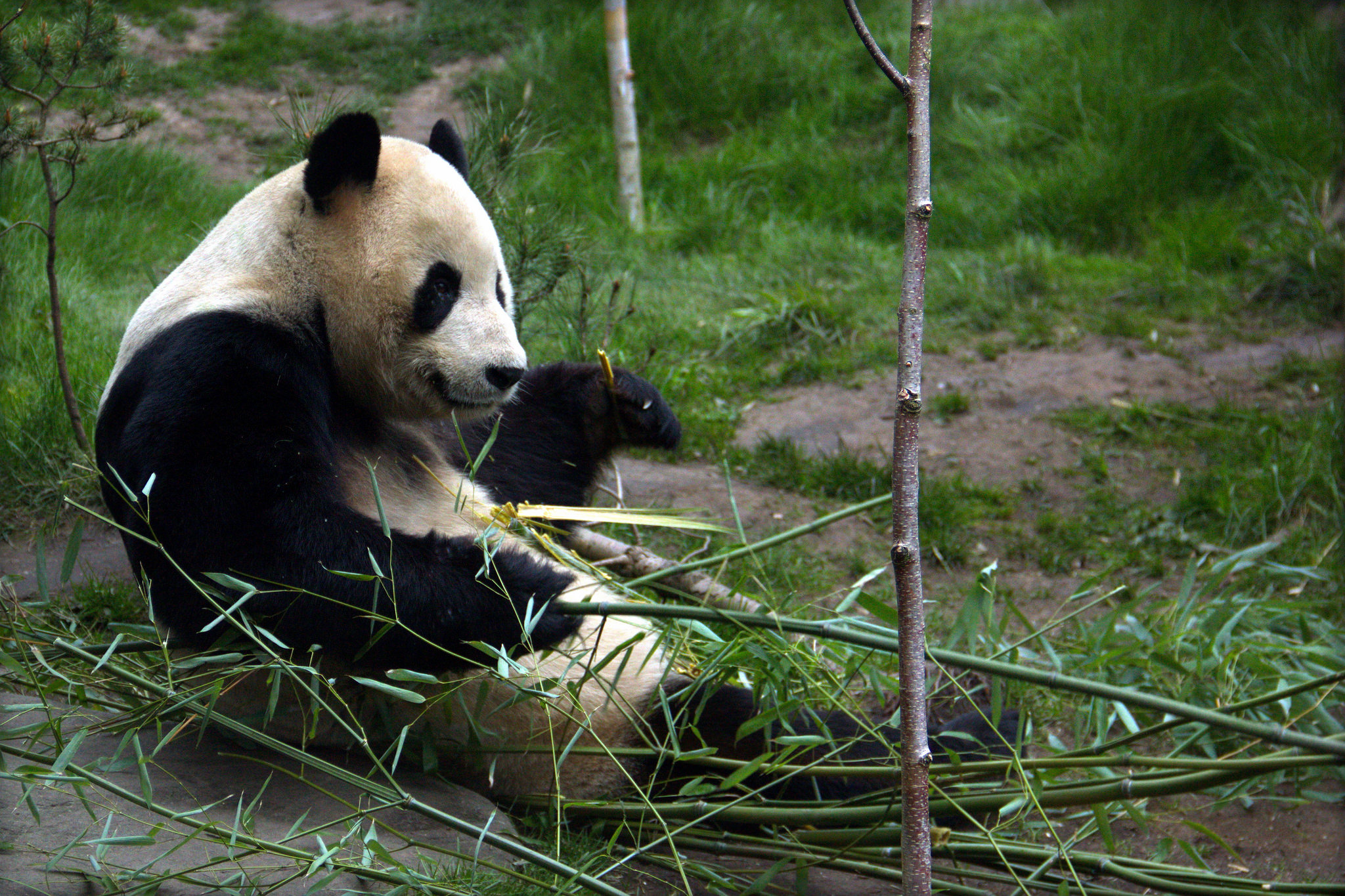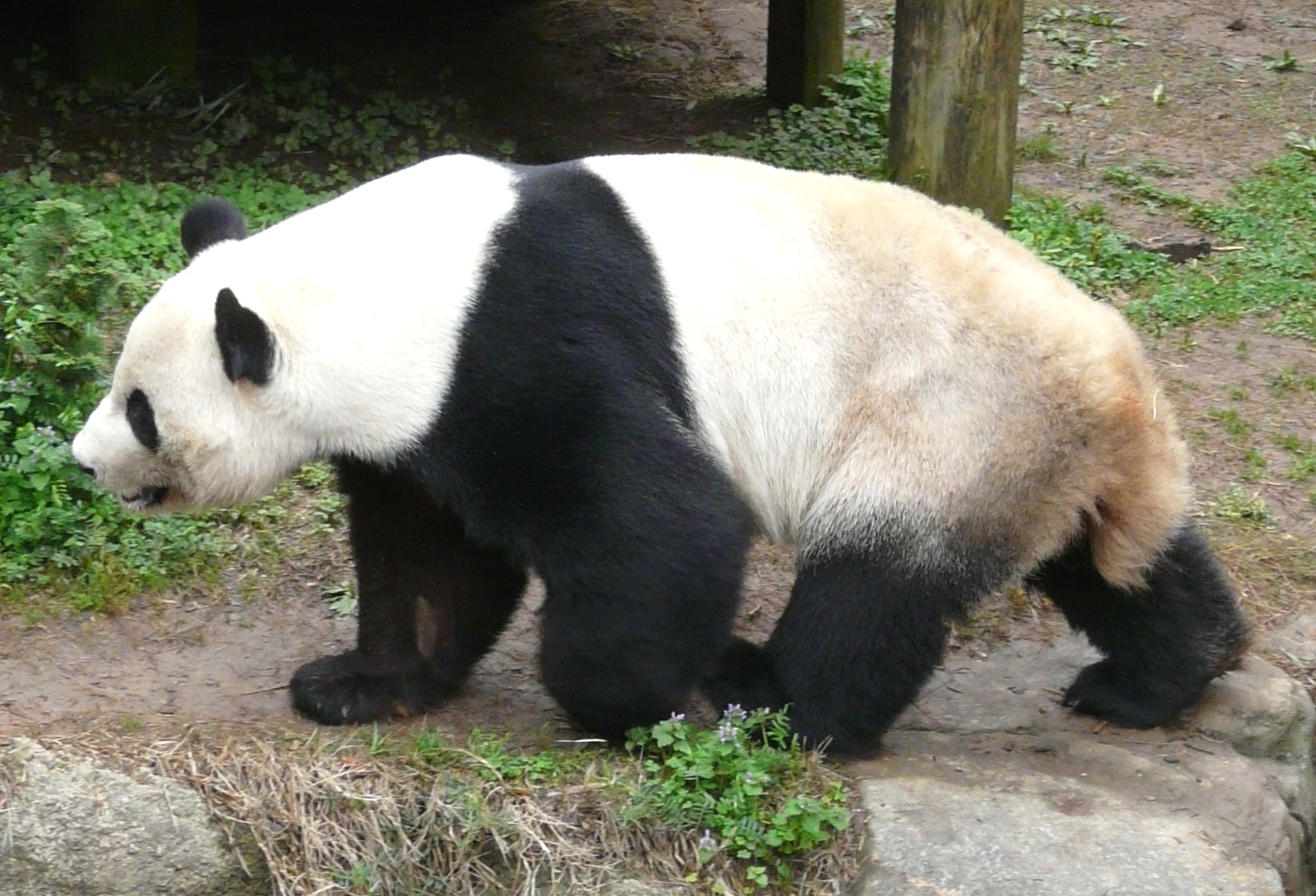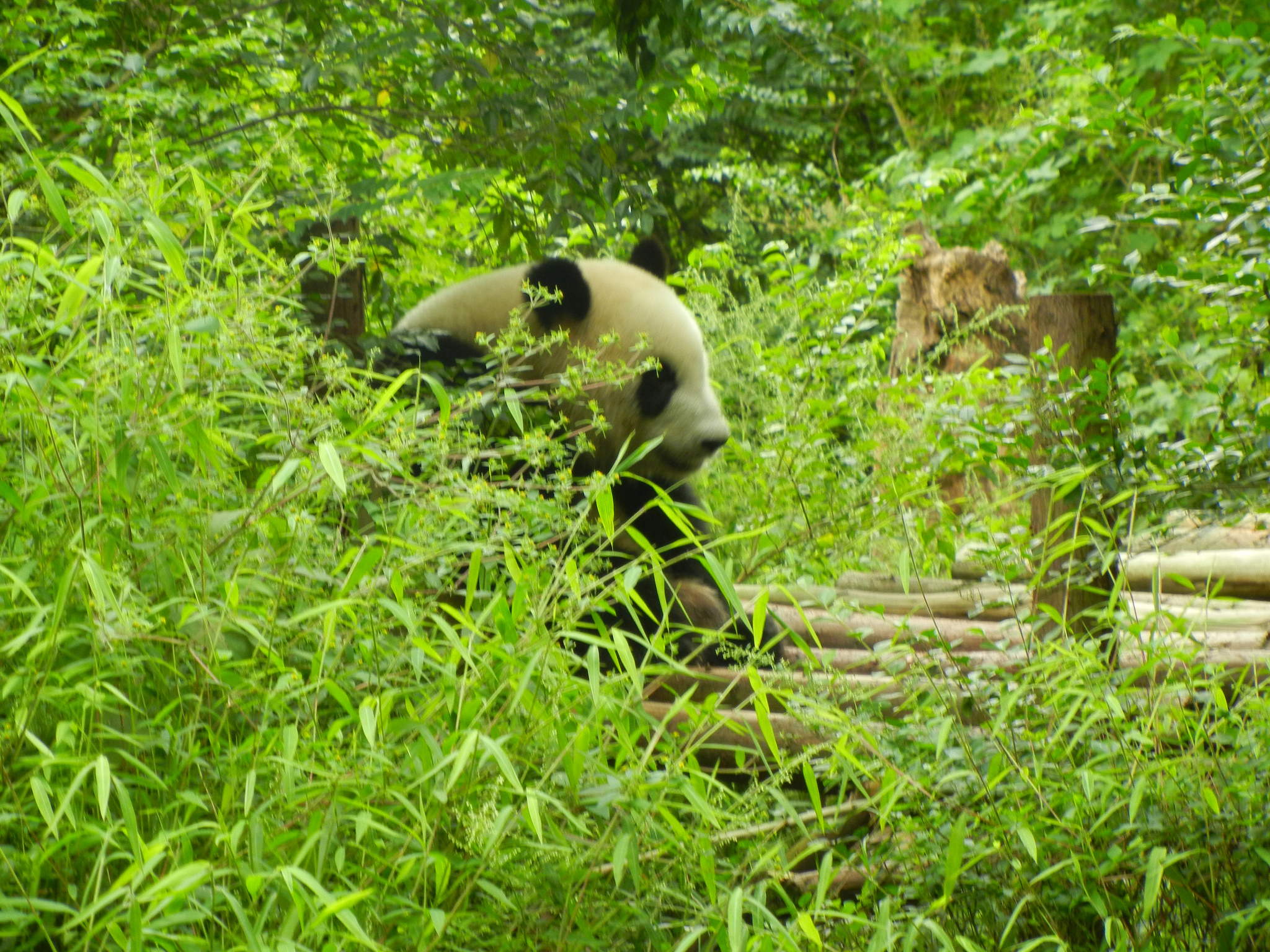The giant panda has long been an icon.
The fluffy, slightly bumbling bears are symbols for China, but they're also symbolic of endangered and threatened species all over the world.
They've been the poster children for environmental and conservation efforts for years, and their often challenging breeding has made people dedicated to preserving them.
But for now, the giant panda has some good news: It's no longer endangered! While pandas are still considered "vulnerable," their conservation status has improved.
In 2003, there were only an estimated 1,600 giant pandas in the wild. Habitat loss from human activity and climate change were threatening the black-and-white bears, and even in the wild, pandas had low birth rates, which is why it's so exciting when pandas have babies.
Nothing is certain, and conservation efforts will continue to make sure these beloved creatures' populations stay healthy. But for the time being, let's hear it for pandas!
[H/T: BoredPanda, National Geographic]

Pandas are beloved the world over. The chubby, mellow bears with the distinct black and white markings are an instant favorite with just about everyone.

Pandas are relatable, too. They spend their days snacking and napping. Maybe we like them so much because we get to live this dream life vicariously.

They're plump, pleasant, and playful (when they're not sleeping), and they've charmed people for years.

They're also kind of dopes, which makes them all the more lovable.

But pandas have also been the face of conservationist movements, alerting people to the very real threats that they, and countless other creatures, face due to careless human activity.

Giant pandas were on the endangered species list for a long time, with only 1,600 estimated to be in the wild. They were put on the list in 1990.
Now, though, there are 2,060 wild pandas, mostly adults. They live on China's 67 panda reserves, protected places where pandas and other animals can live in peace.

The increase in population is due to concerted conservation efforts, and wildlife organizations are thrilled.
But of course, it's not over yet.

The pandas' habitat, the bamboo forests of south central China, are expected to be affected by climate change within the next 80 years, which will cause the population to decrease again.

But for now, we know that working to protect animals really can make a difference, and keeps our planet healthy and full of amazing creatures.

Hopefully, we'll learn to be more careful with the precious life on Earth, and we can help all creatures live full and happy lives.
You can help out these adorable bears by donating to organizations like Pandas International, and getting involved with your local environmental groups.
SHARE to spread the good news, and to help other creatures get the protection they need!




